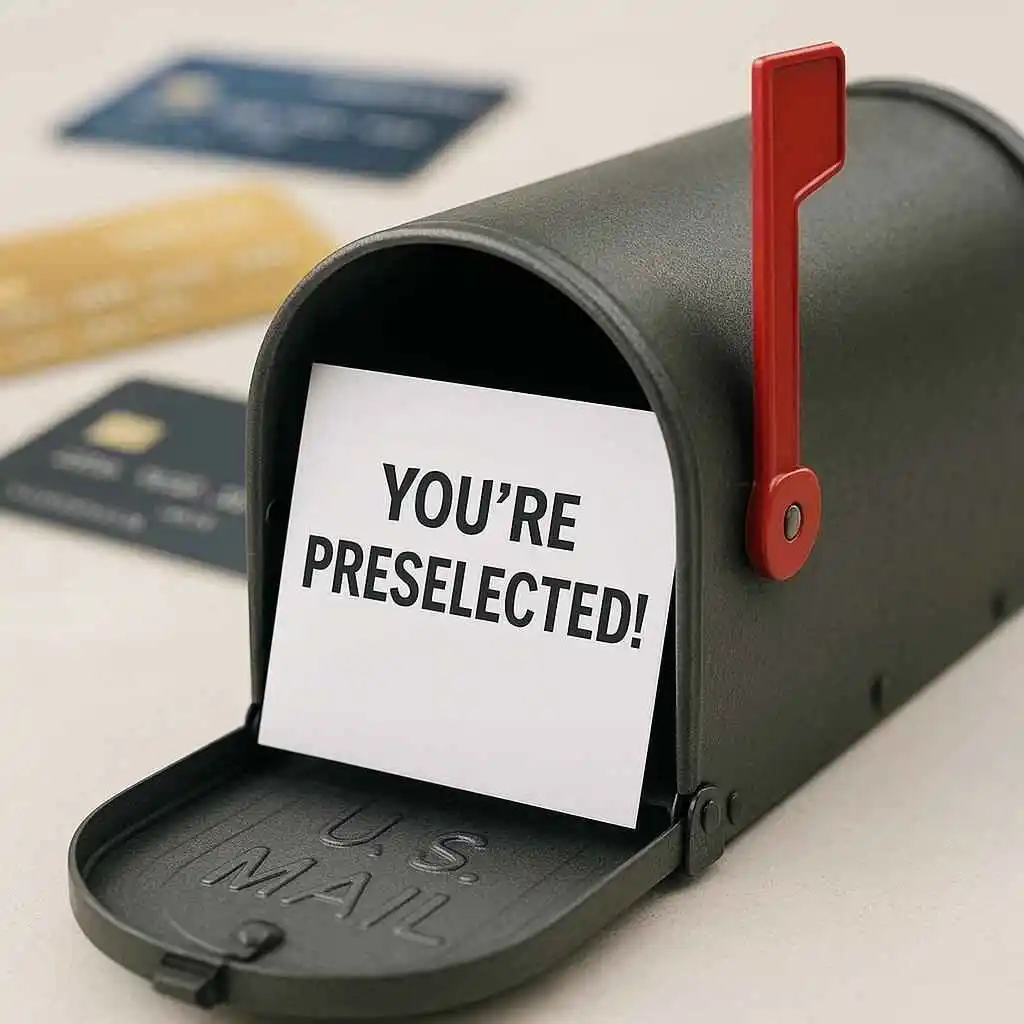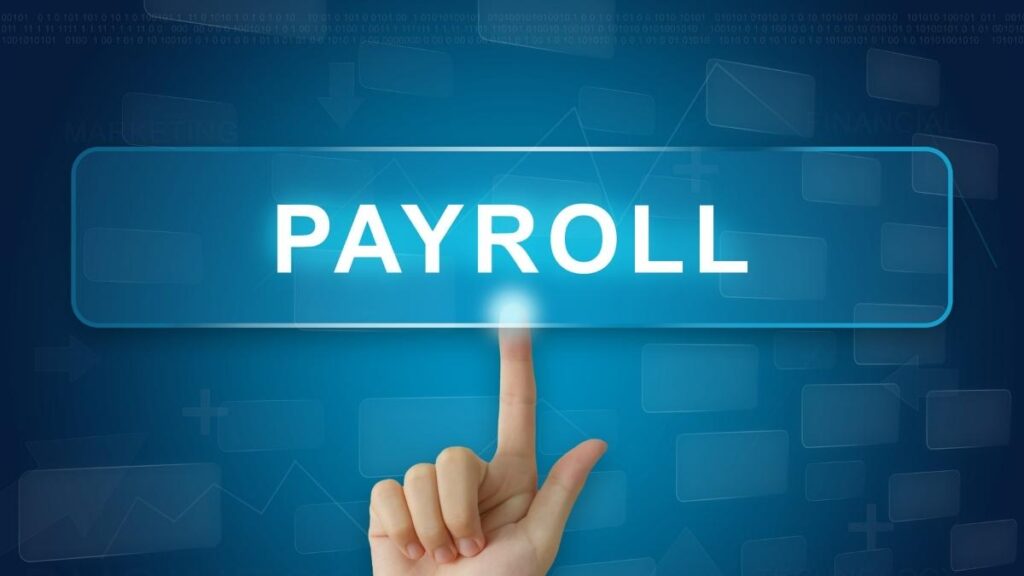
Credit card companies in the U.S. often send out letters, emails, or online notifications saying you’ve been “preselected” for a credit card. At first glance, this can sound like great news—almost like you’ve already been approved. But does preselected really mean you’ll get the card?
The short answer: No, preselected doesn’t guarantee approval. Instead, it means the bank or credit card issuer has done a basic screening (usually with a soft credit check) and determined you might qualify. To help you avoid confusion and make smart financial decisions, let’s break down what “preselected” means, how it differs from other terms like preapproved, and whether you should take advantage of these offers.
What Does “Preselected” Mean in Credit Cards?
When you receive a notice saying you’ve been “preselected” for a credit card:
- The credit card company has looked at some of your publicly available credit information (like your credit report from Experian, Equifax, or TransUnion).
- They use this data to decide if you fall into their target range for approval.
- This process usually involves a soft credit inquiry, which does not impact your credit score.
👉 Key Point: Being preselected simply means you may be eligible. You still need to apply, and the issuer will run a hard credit check before making a final decision.
| Term | What It Means | Credit Score Impact | Approval Guaranteed? |
|---|---|---|---|
| Preselected | Initial screening shows you might qualify | Soft inquiry (no impact) | ❌ No |
| Preapproved | Stricter screening; higher chance of approval if info is accurate | Soft inquiry (no impact) | ❌ Still not guaranteed |
| Guaranteed Approval | Issuer promises approval (usually for secured cards) | Often requires deposit or conditions | ✅ Yes, with requirements |

Why Do Banks Send Preselected Offers?
Credit card companies don’t send these offers randomly. Here’s why you might get one in the mail or email:
- Marketing Strategy – Issuers want to target consumers who fit their ideal customer profile.
- Soft Credit Screening – They’ve already checked that your credit score and history fall within their requirements.
- Competition – Preselected offers make you feel “special,” encouraging you to apply with them instead of another bank.
- Risk Management – It’s cheaper and safer for banks to offer cards to people who already show signs of creditworthiness.
Should You Apply for a Preselected Credit Card Offer?
Not always. Just because you’re preselected doesn’t mean it’s the best option for you. Before you apply, consider:
✅ Pros of Preselected Offers
- Higher chance of approval compared to cold applications.
- Sometimes come with exclusive perks, like bonus rewards or waived fees.
- No credit score impact just for receiving the offer.
❌ Cons of Preselected Offers
- Still requires a hard credit check when you apply (which may lower your score temporarily).
- Not guaranteed—you can still be denied.
- You might be missing out on better cards by not comparing options.
👉 Tip for U.S. consumers: Always compare interest rates, rewards, and fees with other available credit cards before applying.

Safer Alternatives to Preselected Offers
Instead of relying only on preselected mailers, you can explore smarter ways to check your chances:
- Use Online Prequalification Tools
- Most major banks (like Chase, Capital One, Citi, American Express) allow you to check if you’re prequalified.
- This only uses a soft pull, so your score won’t be affected.
- Compare Multiple Credit Cards
- Look at APR, rewards, annual fees, and welcome bonuses across different issuers.
- Sites like NerdWallet, Credit Karma, or directly on the issuer’s website help with side-by-side comparisons.
- Build Credit Before Applying
- Pay down existing balances.
- Keep utilization below 30%.
- Check your credit report for errors before applying.
Practical Tips Before Responding to Preselected Offers
- Read the fine print – Interest rates and fees may not be as attractive as advertised.
- Check your credit score first – Make sure you’re in the right range before applying.
- Don’t apply for too many cards at once – Multiple hard inquiries can hurt your credit score.
- Consider your goals – Are you looking for rewards, travel perks, or just to build credit? Choose accordingly.
FAQs About Preselected Credit Card Offers
Does preselected mean I will be approved for a credit card?
No. Preselected means you meet some initial criteria, but final approval requires a hard inquiry and full review.
Will applying for a preselected offer hurt my credit score?
Yes, once you apply, the issuer will do a hard credit check, which may lower your score by a few points temporarily.
Are preselected offers better than regular applications?
They can give you a slightly better chance of approval, but they’re not always the best card deals available.
Can I opt out of receiving preselected credit card offers?
Yes. You can opt out at OptOutPrescreen.com, a service run by the credit bureaus.
What’s the difference between prequalified and preselected?
They’re often used interchangeably, but “prequalified” usually means you checked online, while “preselected” often comes from the issuer’s outreach.
Do secured credit cards use preselected offers?
Rarely. Secured cards typically require a deposit and don’t use preselected marketing as much.
Read Also- How to Protect Credit Cards from Damage in Wallet
Final Thoughts
Being “preselected” for a credit card can feel exciting, but it’s important to remember: it’s an invitation, not a guarantee. Banks send these offers because you fit a certain profile, but the final decision depends on your full credit history, income, and debt levels.
Before responding to any preselected offer:
- Compare it with other credit cards.
- Use online prequalification tools.
- Apply only if the card fits your financial goals.
That way, you’ll avoid unnecessary hard inquiries, protect your credit score, and choose the card that truly works best for you.

Emma Rose is a U.S.-based personal finance writer and a regular contributor at Cardix.us. She focuses on topics like credit cards, credit scores, and everyday money management. Emma’s writing makes complex financial concepts simple and practical, helping readers make smarter credit and spending decisions with confidence.


